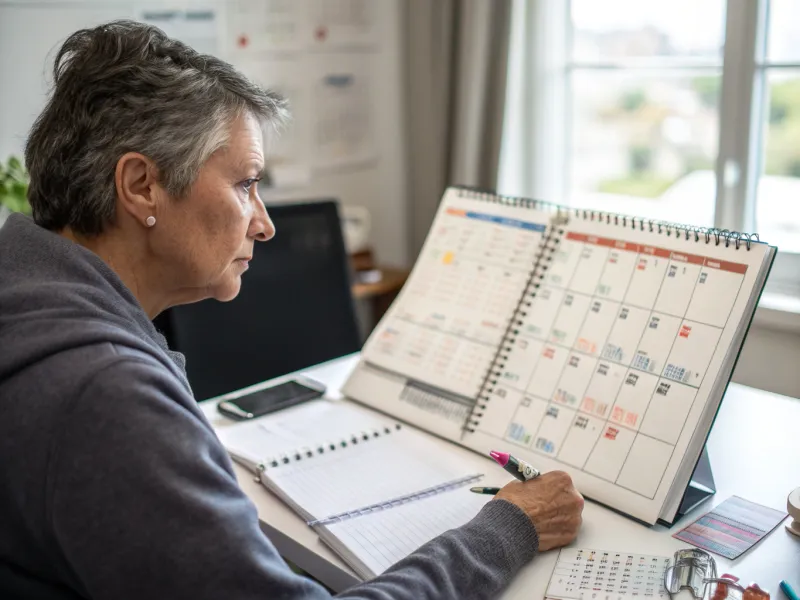29 Harsh Truths About Divorce That Make A Miserable Marriage Look Easier

Divorce is often seen as an escape—a way to finally break free from an unhappy marriage and start fresh. And while sometimes it’s absolutely the right decision, it’s rarely as clean or simple as people imagine.
The reality? Even when leaving feels necessary, divorce comes with its own set of challenges—emotional, financial, and even social—that many don’t fully anticipate.
This post isn’t meant to discourage divorce where it’s needed but rather to highlight the difficult, often unexpected realities that come with it.
Many people assume that once they sign the papers, life will instantly improve—but divorce is a process, not a quick fix.
For those considering leaving, understanding these harsh truths can provide clarity on whether the grass is truly greener or if they need to work on what they already have.
1. The Loneliness Can Be Worse Than the Marriage Was

Even if the relationship was miserable, transitioning from constant companionship to solitude can be quite shocking. After years of having someone there, even if the relationship was fraught with conflict, the sudden absence can feel like a void. Loneliness is an emotional challenge that many underestimate when they decide to leave.
The feeling of being alone can intensify, especially during weekends or holidays when families traditionally gather. This solitude can be more difficult to handle than the presence of a partner with whom you were unhappy. The realization that you are truly alone can be painful.
Engaging in social activities and reaching out to friends can help mitigate this harsh reality, but the cold truth is that loneliness is a formidable adversary post-divorce. Adjusting to this new normal takes time and effort, but it’s a journey many are willing to take for personal peace.
See also: 30 Awful Habits Of Married Couples That Often Lead Straight To Divorce
2. Your Financial Situation Might Take a Serious Hit

Divorce often means splitting assets, but the financial impact can be far more significant than anticipated. Suddenly, you’re adjusting to a single income, which can be a major lifestyle change. The financial strain is not just about dividing what you have, but also about costs that weren’t apparent before.
Legal fees, alimony, and potential child support can add up, making financial planning a necessity. The reality of living on less can lead to stress and anxiety, sometimes making the financial aspect of divorce harder than the emotional one.
Understanding your financial landscape early on and planning accordingly can help ease this transition. Consulting a financial advisor might be beneficial in navigating this complex reality. But the truth remains: the financial hit is one of the more challenging aspects of divorce.
3. If You Have Kids, You’ll Never Truly Be “Done” with Your Ex

For parents, divorce doesn’t end the relationship with your ex; it transforms it. Co-parenting means you’ll have to interact with your former partner regularly, making the idea of being “done” with them misleading. Your children’s events, milestones, and daily needs will keep you connected.
The ongoing interaction can be challenging, especially if the divorce wasn’t amicable. Despite personal differences, maintaining a civil relationship for the sake of the children is crucial. It requires clear communication and compromise, which can be difficult.
The necessity to coordinate holidays, birthdays, and school functions may be burdensome but is a necessary aspect of shared parenting. The harsh truth is that letting go of the personal relationship does not mean you can let go of the co-parenting one.
4. Friends and Family Won’t Always Be Supportive

Divorce can be an isolating experience, especially when friends and family don’t offer the support you expected. Some may take sides, while others might quietly distance themselves, making you feel more alone than anticipated. It’s a harsh reality that not everyone understands or supports your decision.
The idea that life will return to normal after the papers are signed is often misleading. Social circles can shift, and some relationships might dissolve altogether. It can be disheartening to find that those who once offered support are no longer present.
Building a new support system may be necessary. Reaching out to others who have gone through similar experiences can provide comfort and understanding. But the truth remains: the emotional toll of losing friends and family support is a challenging aspect of divorce.
5. Your Dating Life Won’t Be as Exciting as You Imagined

Starting fresh sounds appealing, but dating after divorce can be more complicated than expected. The excitement of meeting new people is often tempered with the reality of emotional baggage and trust issues. The idea of jumping into something new doesn’t always bring the happiness you expect.
Healing from a previous relationship takes time, and entering the dating scene might highlight unresolved emotions. You might find that expectations don’t match reality, leading to disappointment. Each new interaction carries the weight of past experiences, which can make the process daunting.
But dating after divorce doesn’t have to be negative. Taking time to understand yourself and what you want from a relationship can make future interactions more fulfilling. However, it’s important to acknowledge that the dating world may not be as thrilling as once imagined, at least initially.
6. You May Question Your Decision, Even If You Know It Was the Right One

Doubt can creep in even when you believe you made the right choice by divorcing. Moments of uncertainty are common, especially on lonely nights or during significant events like holidays or anniversaries. The decision to leave may have been clear, but the aftermath can bring unexpected emotions.
It’s natural to look back and question whether things could have been different. This reflection can be part of the healing process, but it also highlights the complexity of the decision to divorce. The path forward can feel unclear at times.
Embracing these feelings without judgment can aid in moving forward. Acknowledging doubt as part of the journey can lead to personal growth. Though the decision may have been right, questioning it is a harsh truth that many face.
7. Legal Battles Can Drag On Longer Than Your Actual Marriage Did

The legal aspect of divorce can be surprisingly lengthy and exhausting. Splitting assets and arranging custody can turn into a nightmare if both parties don’t cooperate. It’s not uncommon for legal battles to last longer than the marriage itself.
The process can strain emotions and finances, leaving both parties feeling depleted. The courtroom becomes a battleground where control and compromise clash, often dragging the process out unnecessarily.
Seeking mediation or legal guidance early can help manage expectations and potentially shorten the process. Despite best efforts, the reality remains: legal proceedings can be a drawn-out, taxing ordeal that tests one’s patience and resolve.
8. Memories Don’t Just Disappear

Ending a marriage doesn’t mean you can simply erase the past. Memories linger, and the emotional attachment to those moments doesn’t just vanish with the signing of divorce papers. The nostalgia can be bittersweet, serving as a reminder of what once was.
The good times, even if they were few, tend to resurface unexpectedly. Shutting down those memories entirely is impossible, and they often become part of the healing journey. It’s a challenge to reconcile the past with the present.
Embracing these memories as part of your life story, rather than trying to forget them, can aid in moving forward. The harsh truth is that memories are enduring, and learning to coexist with them is part of the post-divorce experience.
9. You Might End Up Making the Same Mistakes in Your Next Relationship

Without introspection, the risk of repeating past mistakes in new relationships is high. Divorce offers a chance to learn and grow, but it’s not a guarantee against future errors. Without addressing underlying issues, patterns can re-emerge.
The excitement of a new relationship might overshadow the need for personal development, making it easy to fall back into old habits. Recognizing this potential is crucial for building healthier relationships in the future.
Taking time to work on yourself and understand past relationship dynamics can lead to more fulfilling connections. However, the reality is that without conscious effort, the same mistakes can resurface, making this a harsh yet valuable truth to accept.
10. Sudden Lifestyle Changes Can Be Overwhelming

Divorce often comes with significant lifestyle changes that can be overwhelming. Moving to a new home, adjusting to a different routine, or even changing jobs can add to the stress. These abrupt shifts can leave one feeling unanchored.
This transition period requires adaptability and resilience, which can be taxing on emotional health. The comfort of familiarity is replaced with uncertainty, making the journey challenging.
Embracing change with an open mind and seeking support during this time can help ease the transition. However, the truth remains that navigating these sudden changes is a daunting aspect of divorce.
11. Divorce Doesn’t Instantly Solve All Relationship Issues

Ending a marriage might seem like the solution to all relationship issues, but in reality, it often opens the door to new challenges. The underlying problems don’t magically disappear; instead, they might manifest in different ways.
Emotional baggage from the relationship can linger, affecting future interactions and personal well-being. The notion that divorce is a quick fix is misleading, as unresolved issues can continue to haunt you.
Addressing these problems through therapy or personal reflection can aid in genuine growth. The harsh truth is that divorce isn’t a cure-all, and working through relationship issues is an ongoing process that requires time and effort.
12. Your Ex’s New Life Can Be Hard to Accept

Seeing your ex move on and start a new chapter can be an emotionally charged experience. Jealousy, resentment, or even sadness may arise when faced with your former partner’s new life.
These feelings can be difficult to navigate, especially if you haven’t fully moved on yourself. The harsh reality is that your ex’s life continues, and accepting this new normal can be painful.
Finding peace with their choices and focusing on your own growth can help ease this transition. The truth remains: seeing your ex happy elsewhere can be one of the hardest pills to swallow post-divorce.
13. Social Stigma and Judgment Are Real

Despite growing acceptance, divorce still carries a social stigma. Judgment from others, whether overt or subtle, can be a lingering issue. Breaking away from societal expectations might result in criticism or unwelcome opinions.
This judgment can come from friends, family, or even colleagues, adding an extra layer of stress to an already challenging situation. Navigating this social landscape requires resilience and self-assurance.
Building a support network and focusing on personal well-being can help mitigate the impact of social stigma. However, the reality is that judgment remains a part of the post-divorce experience for many.
14. The Emotional Rollercoaster Lasts Longer Than Expected

The emotional turmoil of divorce doesn’t end with the signing of papers. The rollercoaster of emotions can continue for months or even years, making the process complex and ongoing.
Feelings of anger, sadness, relief, and confusion can ebb and flow, making it challenging to find stability. It’s a harsh truth that emotional healing doesn’t adhere to a timeline.
Engaging in therapy or support groups can provide guidance through this turbulent time. Recognizing that the emotional journey is unique to each person can help in finding peace. But the reality remains: the emotional aftermath of divorce is a long-term journey.
15. Rebuilding a New Identity Takes Time

After divorce, the task of rebuilding your identity can be daunting. The life you knew is altered, and redefining who you are outside of marriage takes time and effort.
This period of self-discovery can be both liberating and frightening. The process involves understanding your desires, goals, and values, which can be an emotional challenge.
Embracing this journey of self-reinvention can lead to personal growth and fulfillment. However, the harsh truth is that forming a new identity is a gradual process that requires patience and introspection.
16. The Impact on Children Can Be Profound

Divorce can significantly affect children, impacting their emotional and psychological well-being. The shift in family dynamics can lead to confusion, insecurity, and behavioral changes.
Children often struggle with feelings of guilt or responsibility, believing they must choose sides. It’s crucial to address these emotions openly to help them navigate this challenging period.
Providing reassurance and maintaining consistency can aid in alleviating their stress. Nevertheless, the reality is that the impact on children is one of the most challenging aspects of divorce, requiring sensitivity and care.
17. You May Need to Navigate New Family Dynamics

Divorce not only affects the immediate family but also alters the broader family dynamics. Relationships with in-laws and extended family can change, leading to feelings of loss or disconnection.
Navigating these new dynamics requires communication and understanding. It can be difficult to maintain certain relationships post-divorce, as loyalties may shift.
Being proactive in fostering healthy connections can help ease this transition. However, the harsh truth is that adjusting to new family dynamics is a complex and often emotional journey.
18. The Realization That There’s No Going Back

One of the most profound truths about divorce is the finality of it. Once the decision is made and the process is completed, there’s a realization that returning to the old life is no longer possible.
This understanding can bring about a sense of loss or grief, as you come to terms with the permanence of the decision. It requires acceptance and courage to move forward.
Embracing the new possibilities can help in finding peace with the decision. But the stark truth remains: there’s no going back, only forward.
19. Having to Rethink Future Plans

Divorce often means reassessing future plans that once included a partner. The dreams and goals shared must be reimagined, which can be a daunting task.
This reassessment can bring about feelings of disappointment or uncertainty, as the future appears different from what was once envisioned. It’s a process that requires flexibility and creativity.
Finding new aspirations and setting personal goals can aid in redefining the future. However, the truth is that rethinking future plans is an inevitable part of divorce, requiring adaptation and resilience.
20. The Impact on Mental Health Can Be Significant

The mental health toll of divorce is often underestimated. Depression, anxiety, and stress are common as individuals navigate the complexities of ending a marriage.
The emotional strain can affect daily life, making it challenging to function normally. Recognizing the importance of mental health support is crucial during this time.
Seeking professional help or joining support groups can provide necessary guidance and relief. But the reality remains: divorce can significantly impact mental health, requiring attention and care.
21. Finding a New Place to Live Can Be Stressful

Securing a new place to live post-divorce can be a stressful endeavor. The process involves finding something that fits both financially and emotionally, adding another layer of complexity to the transition.
Adjusting to a new environment can evoke feelings of unease or discomfort, as the sense of home shifts. It’s a challenge that requires patience and adaptability.
Taking time to find a suitable living space and making it your own can help ease this transition. However, the truth remains: finding a new home is one of the more stressful aspects of divorce.
22. Realizing That Self-Care Is Crucial

In the midst of divorce, self-care often takes a backseat, yet it’s more crucial than ever. Taking the time to focus on personal well-being can aid in navigating this challenging period.
Self-care involves not just physical health, but emotional and mental wellness as well. Engaging in activities that bring joy and relaxation can provide a necessary reprieve from stress.
Prioritizing self-care can lead to improved resilience and a more positive outlook. But the harsh truth is that it requires effort and intentionality, especially during a time of upheaval.
23. Understanding That Healing Takes Time

The healing process after divorce is neither quick nor linear. It requires time, patience, and self-compassion, as individuals work through complex emotions.
Each person’s journey is unique, and comparing progress with others can be counterproductive. Embracing the process can lead to deeper understanding and personal growth.
Finding peace with the pace of healing and allowing yourself to feel is vital. However, the reality is that healing after divorce takes time, often longer than anticipated.
24. The Potential for Personal Growth Is Enormous

While divorce is challenging, it also presents an opportunity for significant personal growth. The process encourages introspection and understanding, leading to personal evolution.
Embracing change and taking responsibility for one’s happiness can lead to empowerment. It’s a chance to redefine personal values and goals.
The journey may be difficult, but the potential for growth and transformation is immense. However, it requires openness and dedication to fully realize this potential.
25. Realizing That Happiness Comes from Within

Divorce often brings to light the realization that true happiness must come from within. External circumstances, such as a relationship, cannot solely determine one’s well-being.
This understanding can lead to a more fulfilling life, as individuals learn to find joy and contentment independently. It’s a process that promotes inner peace and resilience.
Cultivating self-awareness and self-love is key to achieving this state. But the truth remains: happiness is an internal journey that requires attention and effort.
26. Appreciating the Importance of Self-Reflection

Divorce offers an opportunity for deep self-reflection and understanding. It forces individuals to examine their own actions, desires, and motivations, providing a chance for growth.
This period of introspection can lead to valuable insights and a better understanding of oneself. It’s a time to reassess what truly matters.
Embracing self-reflection can lead to personal empowerment and clarity. However, it’s a challenging process that requires honesty and willingness to change.
27. Finding New Interests and Passions

Post-divorce, there’s an opportunity to explore new interests and passions that may have been neglected. This exploration can reignite a sense of purpose and joy.
Trying new activities and hobbies can open doors to new friendships and experiences, enriching life in unexpected ways. It encourages a broader perspective.
Pursuing personal interests fosters a sense of independence and fulfillment. However, it takes courage and curiosity to step outside one’s comfort zone and discover new passions.
28. Building a Stronger Sense of Independence

Divorce often leads to a stronger sense of independence, as individuals learn to rely on themselves. It’s a chance to develop self-reliance and autonomy in various aspects of life.
This newfound independence can boost confidence and empower personal growth. It encourages taking control of one’s destiny.
Embracing independence can lead to a more authentic and fulfilling life. However, it requires courage and determination to fully realize this new-found self-reliance.
29. Learning That Compromise Is Essential

Divorce teaches the importance of compromise, not only in personal relationships but in all areas of life. Realizing that not everything can go your way is a valuable lesson.
This understanding fosters better communication and cooperation with others, promoting healthier interactions. It’s a reminder that flexibility can lead to harmony.
Valuing compromise can lead to more satisfying relationships and a balanced life. However, it takes practice and patience to master this skill.
